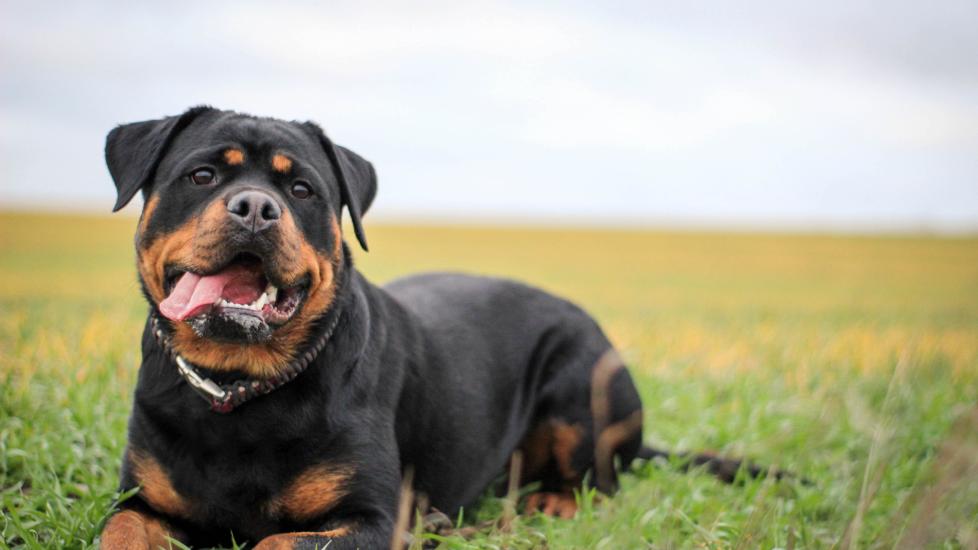Introduction:
The Rottweiler is a large-sized domestic dog breed that originated from the town of Rottweil, Germany. Known for their strength, intelligence, and protective nature, they are often used as guard dogs or service animals.
Lifespan: 8 – 10 years
Coat Length: Short
Alias(es): None (commonly referred to by its name only)
Height: Male: 24 to 27 inches at the shoulder; Female: 22 to 25 inches at the shoulder
Place of Origin: Germany
Body Size: Large
Shedding Level: Moderate
Trainability: Very Trainable
Description:
The Rottweiler has a robust build with muscular limbs and a powerful jaw. They have a short, dense double coat that requires minimal grooming but may shed moderately throughout the year. The color pattern typically consists of black with rust or mahogany markings on the face and legs.
Temperament:
Rottweilers can be loyal, confident, and good-natured companions if trained and socialized well. However, due to their natural instinct to protect and their size, proper training and socialization are crucial. Early obedience training is necessary to ensure these traits work to benefit both the owner and society.
Health Considerations:
Some health issues common among Rottweilers include hip dysplasia, elbow dysplasia, osteochondritis dissecans (OCD), some cancers such as lymphoma and mast cell tumors, eye problems like entropion and ectropion, and gastrointestinal issues. Regular checkups with a veterinarian are essential for early detection and treatment of any health concerns.
Exercise Needs:
Rottweilers require regular physical activity and mental stimulation. Daily walks and play sessions are important to keep them healthy and prevent behavioral issues. A fenced yard where they can run and play is also beneficial.
Grooming Requirements:
Their short coat needs occasional brushing to remove dead hair and maintain shine. Bathing should be done when needed, usually every few months. Trimming nails regularly and maintaining dental hygiene through regular brushing will help keep your Rottweiler looking and feeling great.
Suitable Living Environments:
Because of their energy levels and need for space, Rottweilers do best in suburban or rural environments where they have room to roam and exercise freely. They thrive on human interaction and do not tolerate long periods alone very well.
Legal Restrictions:
Depending on location, there might be specific laws regarding owning a Rottweiler or other “bully” breeds. It is important to research local regulations before deciding whether this breed is suitable for you based on legal considerations.
Conclusion:
The Rottweiler can make an excellent companion for those willing to commit to providing appropriate care, including regular exercise, training, socialization, and veterinary check-ups. Their loyalty and protective instincts can be channeled into making them reliable working dogs or loving family pets.
